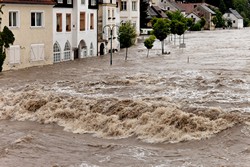Solutions to better prepare European citizens and authorities during large-scale crises
The EU-funded POP-ALERT (Population alerting: Linking emergencies, resilience and training) project conducted behavioural research and a series of empirical studies, considering new issues such as cultural differences and language barriers. Overall, the aim was to create a toolkit to help prepare and alert Europeans during a crisis. Work began with a literature review and an online survey to examine population behaviour and attitudes in preparing for and reacting to crises. Both considered new aspects that involve targeting local populations and visitors such as expats and tourists. Using the research as a basis, project partners developed a framework to facilitate the assessment of a population's awareness and preparedness in benefiting from different crisis management strategies and technologies developed at EU level. The POP-ALERT team identified several success stories within existing and past community preparedness programmes. It then delivered case studies identifying best practices in specific disaster scenarios that could be replicated for crises with a European dimension and cross-border disasters. Researchers explored how best to combine contemporary tools with existing identified practices. To improve current practices, they proposed messaging and cultural sharing technologies to create awareness. Focus was on technologies and approaches that offer the best form of accessibility and penetration for citizens and authorities. Two pilot experiments tested the cross-border capabilities of the identified generic methodologies. They also assessed their effectiveness in developing an improved level of preparedness in both rural and urban communities that have transient and resident populations. Lastly, an information framework was developed that provides real-time information to the public about current disaster scenarios and proposed actions. It incorporates both traditional and new media to ensure the broadest possible coverage. POP-ALERT introduced flexible and easily deployable toolkits, and a framework for preparing and alerting Europeans in case of a crisis. By involving various actors in crisis management, response should be quick and effective.
Keywords
Large-scale crises, preparedness, POP-ALERT, emergencies, crisis management



